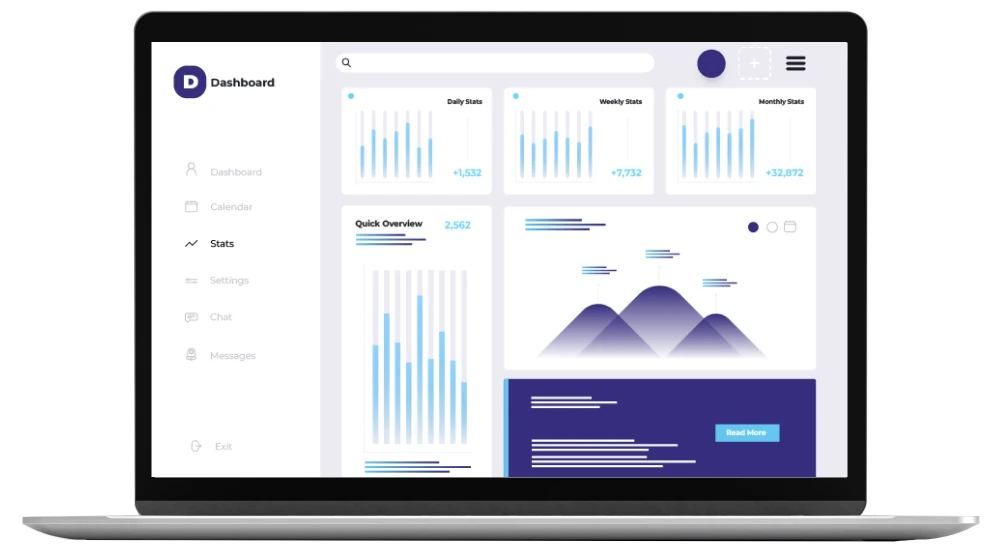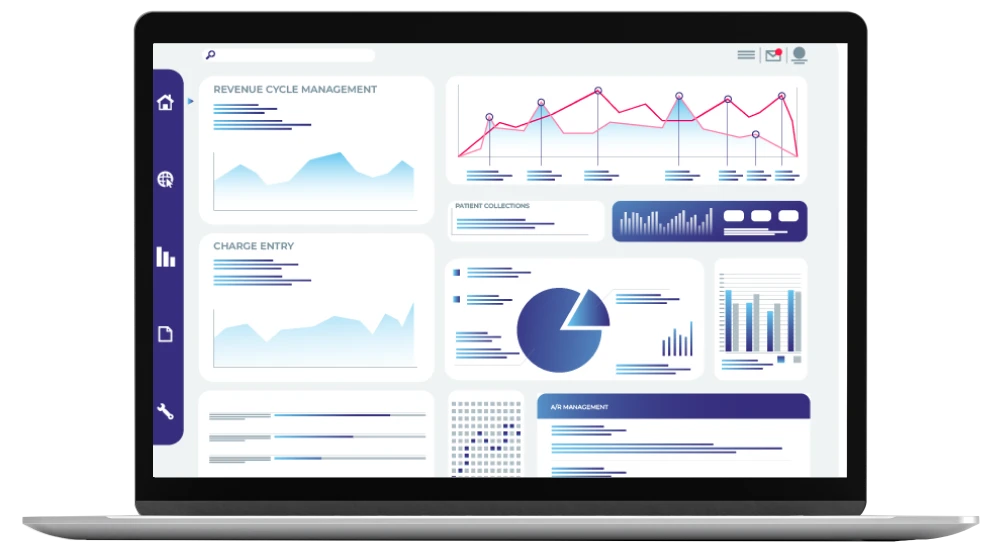Revenue Cycle Management
Revenue Cycle Management (RCM) is the process of managing a healthcare practice’s financial transactions, from patient registration to final payment, ensuring smooth cash flow and efficient billing.
Reach Us Now!
How It's Done

Managing a medical practice’s finances is complex. Between evolving regulations, strict insurance policies, and patients with expectations higher than Mt. Everest – it’s a recipe for revenue leakage, cash flow disaster, and operational chaos.
Managing a medical practice’s finances is complex. Between evolving regulations, strict insurance policies, and patients with expectations higher than Mt. Everest – it’s a recipe for revenue leakage, cash flow disaster, and operational chaos.
Managing a medical practice’s finances is complex. Between evolving regulations, strict insurance policies, and patients with expectations higher than Mt. Everest – it’s a recipe for revenue leakage, cash flow disaster, and operational chaos.
You Have Queries?
Fill out the form and get your prices
Revenue Cycle Management

Managing a medical practice’s finances is complex. Between evolving regulations, strict insurance policies, and patients with expectations higher than Mt. Everest – it’s a recipe for revenue leakage, cash flow disaster, and operational chaos.
Managing a medical practice’s finances is complex. Between evolving regulations, strict insurance policies, and patients with expectations higher than Mt. Everest – it’s a recipe for revenue leakage, cash flow disaster, and operational chaos.
Managing a medical practice’s finances is complex. Between evolving regulations, strict insurance policies, and patients with expectations higher than Mt. Everest – it’s a recipe for revenue leakage, cash flow disaster, and operational chaos.

Managing a medical practice’s finances is complex. Between evolving regulations, strict insurance policies, and patients with expectations higher than Mt. Everest – it’s a recipe for revenue leakage, cash flow disaster, and operational chaos.
Managing a medical practice’s finances is complex. Between evolving regulations, strict insurance policies, and patients with expectations higher than Mt. Everest – it’s a recipe for revenue leakage, cash flow disaster, and operational chaos.
Managing a medical practice’s finances is complex. Between evolving regulations, strict insurance policies, and patients with expectations higher than Mt. Everest – it’s a recipe for revenue leakage, cash flow disaster, and operational chaos.
Frequently Asked Questions
RCM is the financial process used by healthcare providers to track patient care services from registration through final payment, ensuring timely billing and reimbursement.
Effective RCM ensures timely payments, reduces claim denials, and maximizes revenue, helping healthcare providers maintain financial stability.
The key steps include patient registration, insurance verification, charge capture, claim submission, payment posting, and denial management.
By ensuring accurate coding, verifying insurance eligibility, and following up on denied claims, RCM helps reduce the risk of claim denials.
RCM tools include billing software, electronic health records (EHR), claims management systems, and analytics for performance tracking.
Efficient RCM reduces billing errors and speeds up the reimbursement process, improving cash flow by minimizing delays and maximizing collections.
Yes, many healthcare providers outsource RCM services to specialized companies to improve efficiency, reduce administrative burden, and focus on patient care.
